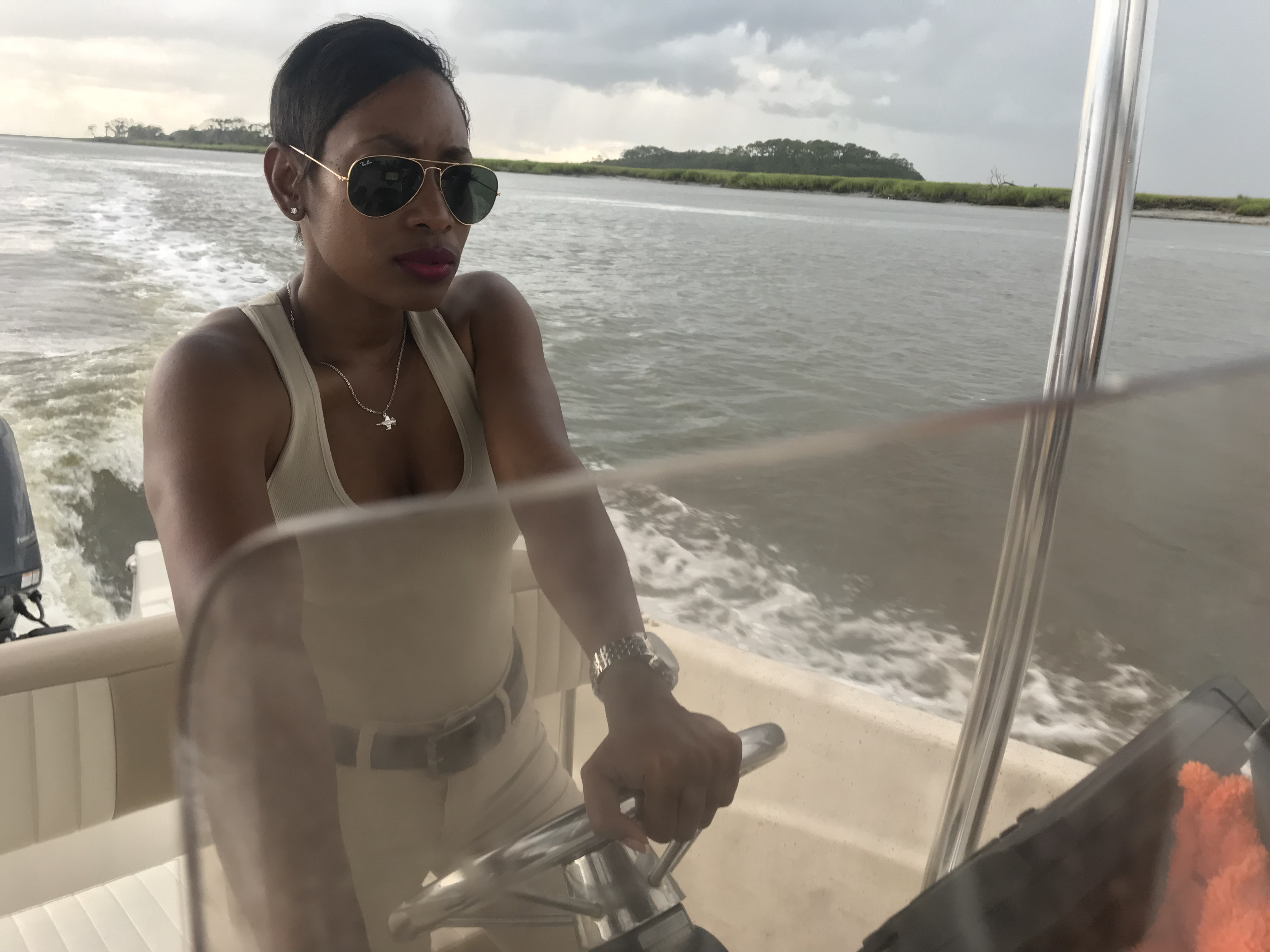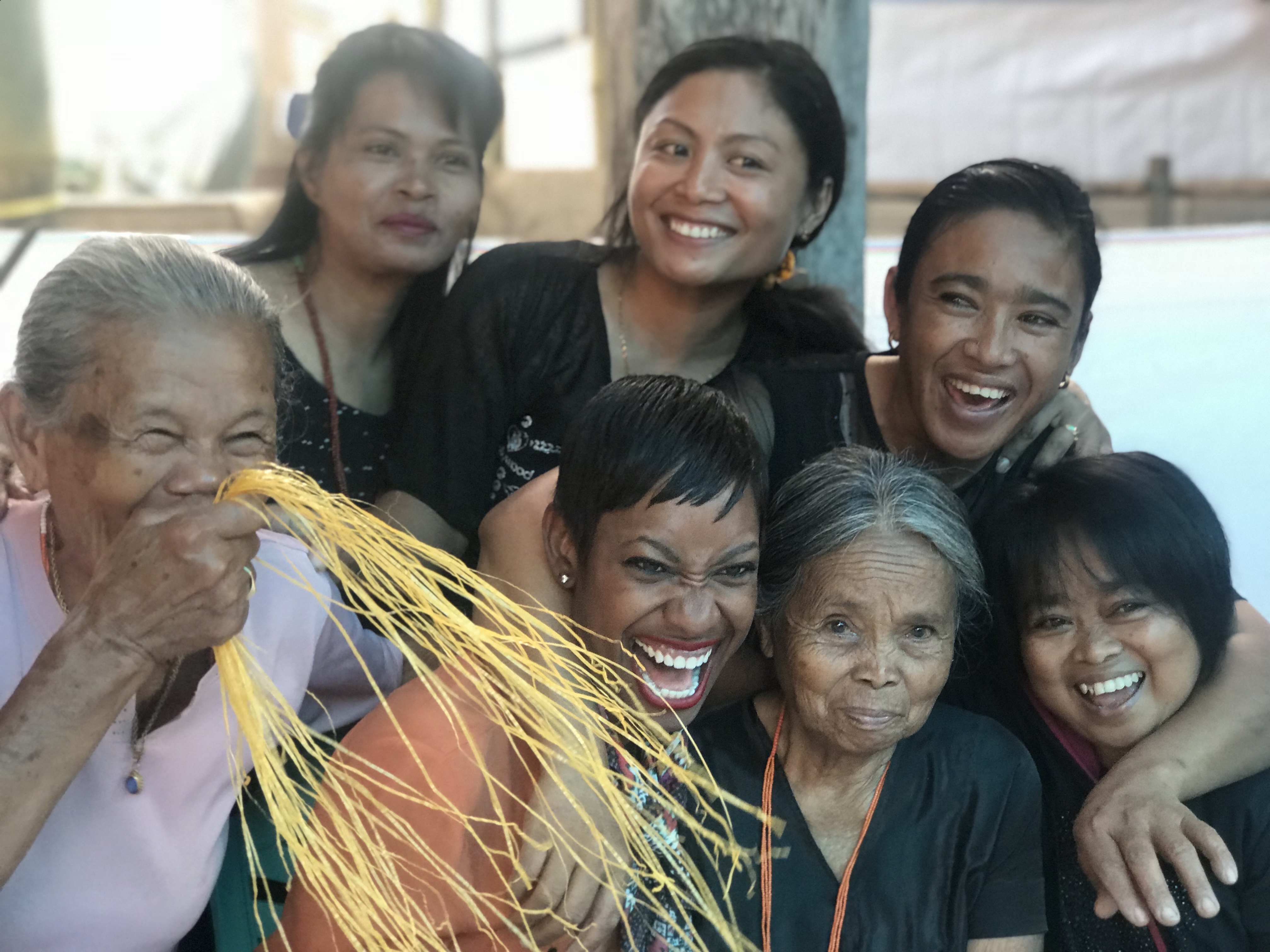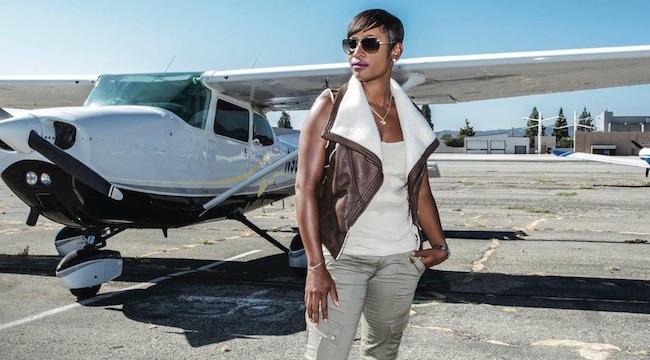
A life of adventure is thrilling in theory and significantly harder in practice. It takes real grit, a pinch of madness, and a wild heart. Kellee Edwards knows this all too well. She seems to take her travel advice straight from Indiana Jones. She’s been certified as a diver, a pilot, and spent years traveling the world with a camera and dream.
That dream was to be the first black woman to host a Travel Channel show. And it’s not a dream anymore. It’s a reality.
It’s hard to fully fathom all the hard work that goes into being a professional traveler. We see the Instagram influencers and TV hosts deep into their careers. What we don’t see are the years of hustling, struggling, and taking huge financial bets on yourself. Edwards likes a little gamble. And, for her, it’s just paid off big.
Edwards spent her young adult life chasing her fears and overcoming them one step at a time. That pursuit eventually led her to Travel Channel where she hosts the wholly unique Mysterious Islands. The show is an outlier in the travel TV world. As a black, female host, she’s bringing a new point of view to a very white and male-dominated medium. As an adventurer, Edwards is going to places that few dare tread. The combination is straight fire.
We got a chance to talk with Edwards just as season two of Mysterious Islands dropped over the holidays. Talking with someone like Edwards is part edifying and part inspirational. It’s the sort of chat that inspires you to take on your fears and trust that luck favors the bold. Let’s jump in.
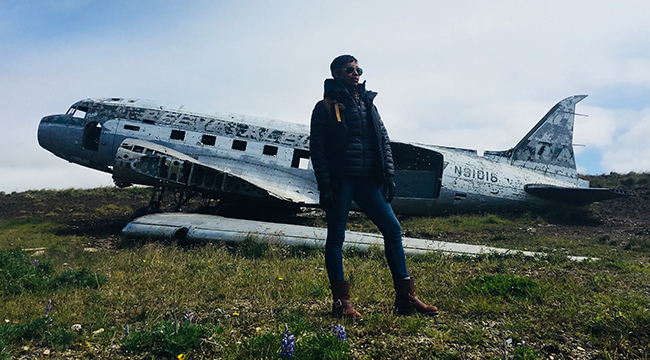
So let’s take a step back and talk about how and when you started traveling.
So I grew up taking road trips with my parents. From a very early age, my dad took me to the great outdoors. I was born in Chicago and spent my early childhood there; but, I grew up in San Bernardino, CA, in a very middle class family. Still, hitting the road was a big part of the world he was familiar with and he gave that to me.
So your dad traveled a lot?
He’s a truck driver by trade and loved camping in the great outdoors. He was the first person that I saw swimming in the ocean. So in a lot of ways, he was just like that person who introduced me to a world that I was not familiar with coming from the south side of Chicago.
It feels like having that childhood of travel experience is a big help when you want to spend your life on the road.
Yes, absolutely. I always tell people, it’s important to feed your children’s curiosity, even if it’s not something you’re familiar with. You know that’s how you change a generation of people: You allow them to explore places and possibilities that you haven’t necessarily had access to. That’s how we grow as a people. Even though my dad exposed me to camping and road trips, and seeing the U.S. in that way, he doesn’t even like small airplanes. He doesn’t even have a passport! So what he did was lay a foundation that allowed me to take it to the next level.
So after your childhood of traveling with your parents, what was your next big step in your travel experience?
My first international trip was to Ghana. Accra, specifically. It was transformative for me as an African-American because … you always want to see, like, the motherland.
I went over there and the food tasted different. I was just entrenched in this place that I always wanted to see in a very real and powerful way. Women were literally walking down the street with baskets of bananas on their heads. It was just very real and raw. It is beautiful. And I thought to myself, “if this is how it is here, what’s going on everywhere else?”
What was the most difficult thing for you as a newbie traveler on that trip?
It was the place where I learned about jet lag. I swear for about seven days my sleep was thrown off! I thought, “Oh, my gosh, this is quite the introduction to travel.” Then I get home and now I can’t even sleep. I kept thinking that this world travel stuff is something else. It’s something that takes you out of your element mentally and physically.
Seven days is rough. For some people, that could be a deal breaker. Do you feel like that drew you in more with a need to conquer the jet lag aspect or did make you step you back a bit?
It was one of the first times I learned I didn’t really have control over much, including my own sleep. It also showed me about adaptability. Leaving a place, coming back, and having to resume your normal life is tough. Sometimes I find it more fascinating to be gone more than resuming the normal life. Normal is boring.
Normal is boring. I can get behind that.
It’s something that I heavily shy away from. I was always that kid who wanted to do different, who’s been called different — from the things that I want to do to the way that I speak. But, as an adult, all those things have made me who I am. I embrace the strange. I embrace being different. I embrace being what some people may refer to as crazy or weird.
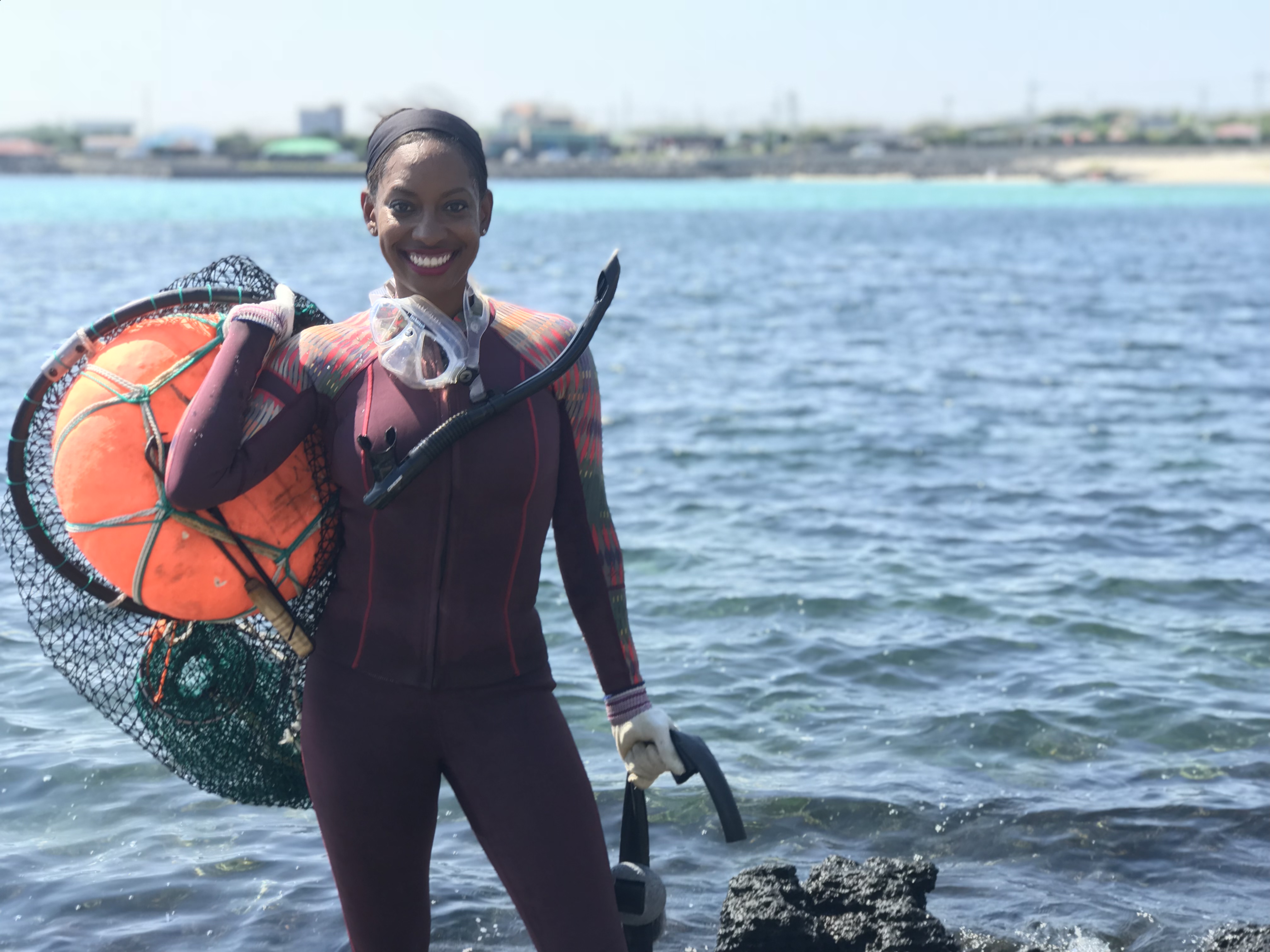
I dig it. So let’s shift to how you went from traveling for yourself to becoming a pro traveler. As you know, people actually go on the road and spend (a lot of) their own money for years before they get to actually be someone who makes money off of traveling. What was your path to travel TV stardom?
So, I really started this journey before Instagram and all of the heavy social media. My degree is in broadcast journalism from Cal State Fullerton. I had a couple of careers before I got to travel journalism. I was an entertainment reporter. I did a tiny bit of sports reporting. Those were just things that, to be honest with you, didn’t really feed my soul or passion.
I mean, you can only ask, “what’s your next movie about,” and “what’s in your purse,” and “who made your dress” so many times. But I knew I loved being a journalist. I do love asking questions and experiencing the world. I had to ask myself what can I do to still use my degree and have a fulfilling career?
So you kind of looked back to go forward?
I reflected back on my childhood! I love traveling. I love the great outdoors. The thing is, when I thought of a “travel journalist,” I thought of, you know, the CNN reporters who were on the front line reporting on the war. I was not envisioning leisurely writing about travel and beaches.
So, what I decided to do was start traveling the world with my tripod and my camera, going wherever I could go. I took my tripod and my camera, hit record, then run around in front of the camera and do these YouTube videos that, when I look back on them … they aren’t the best. But I did the best that I could with what I had.
And even that takes time. That was years of work and travel for you.
I built the content and it kept getting better and better. Then I started seeing this emergence of people blogging. At the same time, I watched Travel Channel and I saw Anthony Bourdain and Samantha Brown and Andrew Zimmern, and I knew I wanted to be on that network. For me, the highest level of travel journalism and TV is on Travel Channel. So I knew that’s where I want to be.
The thing is, I didn’t see anyone that looked like me at all. They only had Samantha Brown as a woman, first of all. And, then, as far as African-Americans, not one. I looked around and thought, what am I not seeing on this network? How can I be that so I can get their attention? I knew that was the place where I wanted to be because, if given the opportunity, I’ll be able to represent a few things: A woman who’s African-American and who does adventure travel.
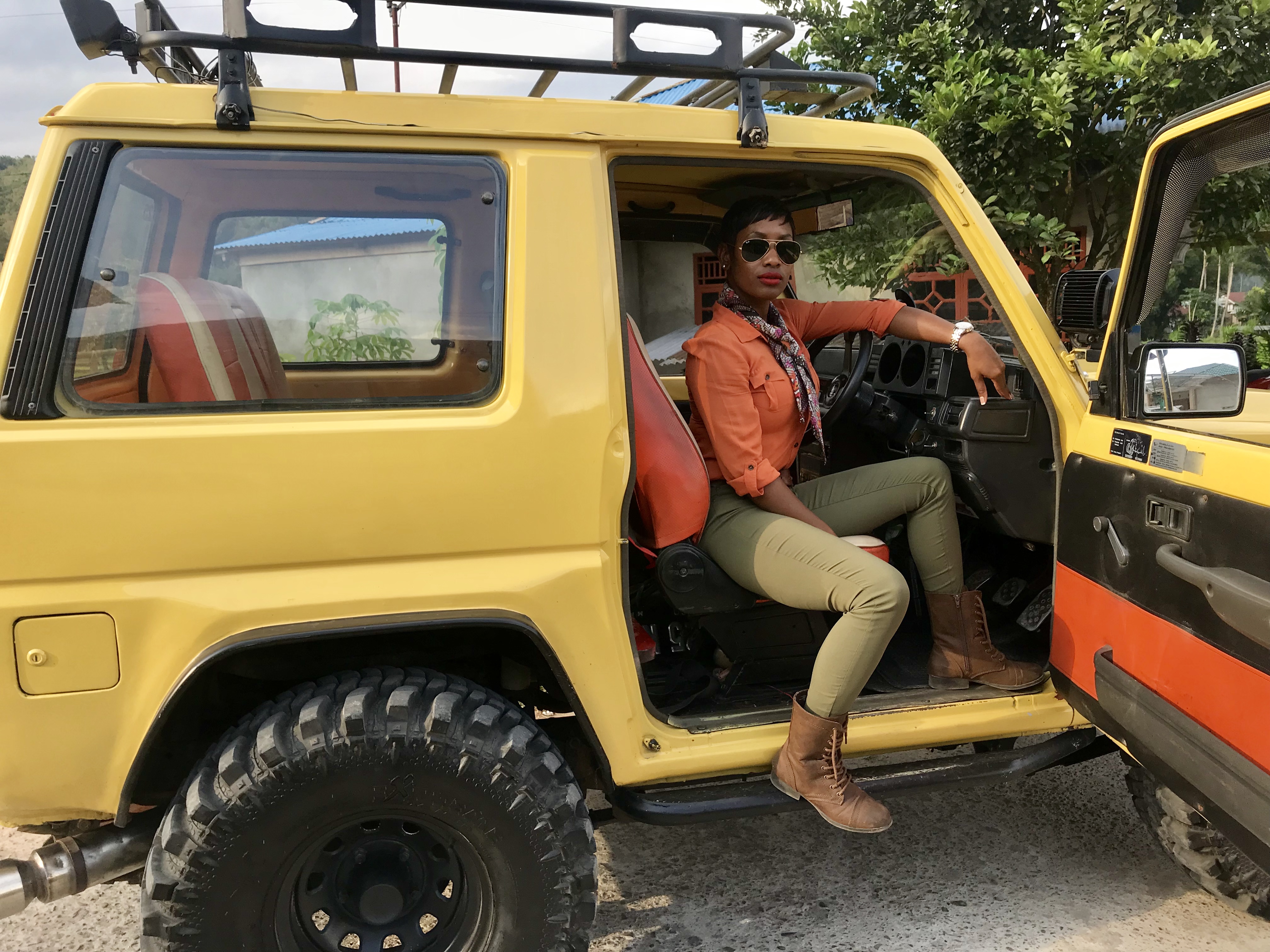
I love that. So what were the first steps you took towards getting their attention?
I didn’t really see anyone exploring the ocean on TV in a way that was interesting to me. So got my scuba diving license. It was one of the hardest things that I’ve done because I’m afraid of the ocean! But I’m the type of person that once I give you my money to learn something, I’m going to see it through.
Then one day I was sitting at Burbank Airport and I saw this little airplane with one person in it. The guy was landing and taking off. At the time I didn’t know that was called a touch and go. But, Zach, seeing one person in a small airplane by himself landing and taking off amongst Delta, Southwest, United, made aviation accessible to me. So I googled “flight lesson and small planes” and I found a flight school. I took a discovery flight even though I’m afraid of heights!
That’s a lot to overcome for a pilot’s license…
I’m the woman who is mind over matter. Everything you want is on the other side of fear. If it scares me, I show up.
I love that. What was the experience of getting your pilot’s license like? Being in little planes is a huge departure from commercial airliners. Learning to fly them must be a big leap.
So when I took my first flight lesson, I got sick in the airplane because there’s no pressurization. It’s not comfortable. There was a lot of turbulence because where I live in southern California, we’ve got the ocean, the mountains, and the desert all like immediately there. And so, I got sick. But then the flight instructor gave me the controls. That power that I felt while I turned the plane a little bit was amazing.
And I wasn’t flying at 30,000 feet, I’m flying like 7,000 feet where I can see where I live. I can see the freeway that I’m stuck in traffic all the time! It was awesome. I realized right then that as a traveler, this my thing. I need to learn how to fly an airplane and become a pilot so I can take myself to my own destinations. And no one was doing that on TV.
What was the most challenging aspect of learning to fly for you?
I thought that getting my scuba diving license was challenging. Learning to fly a plane is mind-blowing. Even to this day, as a pilot, you never stop learning. You’re not just a pilot; you’re a mathematician, you’re a weatherman, you’re the doctor on board. There’s so much responsibility when you sit in that cockpit. Plus, it was very challenging for me at times because I’m a five foot three young woman who can’t quite reach the pedals or see over the instrument panel because I’m short.
So when I first started learning how to fly, I had to sit on a phone book, because I couldn’t see and I couldn’t reach. It became glaringly obvious that these airplanes are clearly made for men. But I did what I had to do because the freedom of flying is something I can’t even explain to this day. Just the fact of being up there and seeing what I can see and knowing that I’m in such this amazing control of travel. It’s freaking awesome.
The world opens up to you.
That’s exactly it. Listen, when I tell people, let me take you to lunch. They show up, they get in my car, I drive to the airport. We fly to lunch. So yes, the world opens up in major ways. The greatest gift that I’ve given myself is to be able to fly myself, my friends, and my family to places they might not otherwise see.
That’s what I dig about your show is that the places you’re going to aren’t so much impossible as that they just take that little extra effort to get to.
Exactly. It takes a little bit more grit to get there.
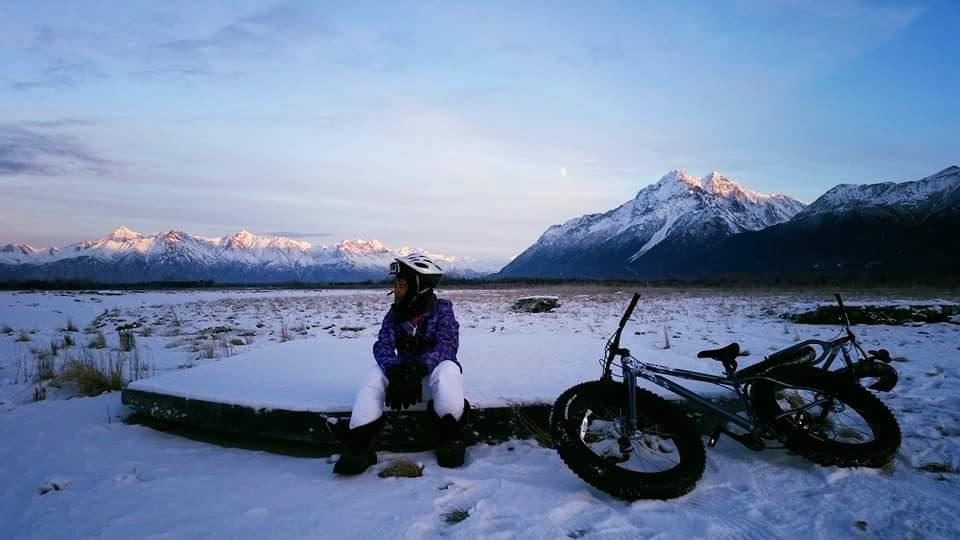
I think the point of travel, especially for real adventure travel, is that without the effort then what’s the fucking point?
Exactly. It’s so true. One of the coolest experiences I’ve had while shooting my show was flying into Nikolski, Alaska from Dutch Harbor. Now mind you, we were grounded. We had to put this flight off like two, three days because Alaska is a beast as a whole. And when that weather kicks in, it changes on the minute. You can have clearance one second and next thing you know it’s like, “nope, this is too dangerous.”
And Nikolski is such a unique place. There are only 22 people on the island, and it’s the size of Rhode Island. They rely on airplanes. That’s how they get their water, their food. So, literally, the whole village greets you when you land your plane on the gravel runway. So just to see that, to be there like that, was the best flying experience you can have.
What advice would you give someone who wants to be a pilot?
One thing about being a pilot is that you have to have a bit of a wild heart. When you’re in the sky, things can change so much that it becomes a survival moment. I’ve been flying in sunny southern California and, suddenly, I lose avionics. Now I can’t communicate with the tower or other airplanes around me. Let me tell you, air to air crashes are real.
So, what did Travel Channel say when you showed up?
I think that my ability to be a pilot was something that was very attractive to Travel Channel. They literally said to me, “One, we’ve never seen anyone like you or ever had anyone like you on our network. And, two, you do what you say you can do. We get bloggers all the time, wanting to have a show without anything backing it up. You have years of content where you’ve been doing this on your own on YouTube, we just want to elevate that.”
Did you know what you wanted your show to be when you got to Travel Channel or was there a long process that led to a thoughtful decision after you knew you landed a show?
Definitely thoughtful decision. Here’s the thing, between myself and the network we talked, a lot. They’d ask me, “where would you like to go Kellee?” And for me, I need the adventure. I like off the grid, harder to get to places. I like the places that I can put a little plane in on a dirt runway. I also chase experiences that I’m not familiar with.
I know that I’m supposed to be the expert, but I’m more of the vessel. That’s what I am on my show. I am sharing information with people from these places. These stories have nothing to do with me. I am here to share with the world. My show’s called Mysterious Islands for a reason. We wanted to go places that were mysterious. So, I’m probably not going to go to a Caribbean island that people are familiar with and have been for a long time.

Where are you going and why?
I’m going to go to Sulawesi, Indonesia, where, when a family member dies, they keep them in their home until they can have a huge funeral ceremony that can cost upwards of 100,000 US dollars. Those mind-blowing and off the grid experiences are something that I too am bewildered by. The fact that I’m able to share that on that platform with the world, has been awesome.
Why? You know, adventure travel belongs to white males. And, actually, don’t let me in through your door. I’m going to break it down! I am going to come in and I’m going to do what you do. And I’m going to do a little bit more. I’m not just the diver or just a pilot or just a mountaineer. I’m a pilot, diver, mountaineer, adventure traveler.
We’re both people who are very lucky in that we get to see a lot of the world. Some of it can become repetitive if we’re being honest. So, for you, what are some of the places you’re looking forward to experiencing in 2019?
I love going to places that don’t have very good phone service! One place, in particular, that I’m looking forward to is Lord Howe Island in Australia. First of all, only 400 people can go there during the year. That’s somewhere I want to experience. I have to go to Madagascar because it’s such a unique ecosystem. They have very interesting ceremonies there around how they treat their dead, which always interests me. So, I’m still looking for the experiences that not everyone can have. But if you are bold enough to seek it out, you can do it too.
Before we jump off the call, what’s happening in the new season of Mysterious Islands?
I’m really looking forward to people seeing the way other people truly live. This is a true adventure travel show. There’s the adventure, but more importantly, there’s culture and history. A history that’s uncomfortable as well. I go to the Gullah Geechee Islands and we talk about slavery. There are moments on a plantation where I’m very emotional and I’m angry.
I’m also looking forward to people seeing more than just the food but seeing the people and how they live and sharing that with the world. It’s truly fascinating and enriching. I just want us to get out of our own little bubble and realize that there’s a whole world that’s waiting to be explored. I just hope more people are going to be willing to do it.
